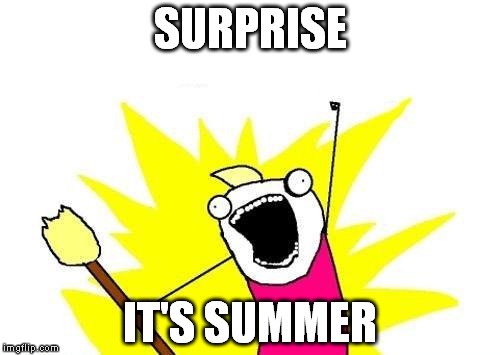- Mar 2019
-
www.edsurge.com www.edsurge.com
-
This article explains just in time learning (such as that which can be done via devices) within the context of higher education. My interest is in public health education, but at this moment, I am not sure how much I can narrow in on that topic, so I will save this for now. This is obviously not a scholarly article but is of some interest nonetheless. rating 2/5
-
-
www.allisonrossett.com www.allisonrossett.com
-
This plain page incorporates an overview of job aids by Allison Rossett, who is the foremost authority on the topic. Not all information is given away for free as she wants to sell her books, which are also promoted on the page. This page can be a good way of tracking her current work. Rating 3/5
-
- Feb 2019
-
static1.squarespace.com static1.squarespace.com
-
Symbols
Uummm...just me or are there not symbols here?
-
- Jan 2019
-
static1.squarespace.com static1.squarespace.com
-
here are representations on the one hand and ontologicallyseparate entities awaiting representation on the other
Ok, I think this is it. This is her whole thing; her thesis. And it is one hell of a thesis.
-
healthy skepticismtoward Cartesian doubt
lol, but for real, what Barad is suggesting really is difficult to do, or at least I'm finding it difficult to do.
We believe words are more understandable and apprehensible than the physical world. We believe words are more understandable and apprehensible than the physical world. We believe words are more understandable and apprehensible than the physical world. . .
It seems crazy because our society is so science and tech driven, but she's right. We believe words to be prior (ontologically) to the world around us because they are a part of "us," our own minds.
Distorting Descartes's famous thought experiment here seems to help me understand this. While I suspect the average person could be pushed into admitting the possibility of an evil demon spinning an elaborate hoax for you, deceiving your physical senses and tricking your brain, I can't imagine finding anyone who would admit the opposite. The opposite would be that the external world exists largely as you perceive it. The demon is not manipulating your experience of the natural world at all. Instead, he is tricking you into believing you exist.
We're so Cartesian we can't even conceive of it being otherwise. Perhaps Spinoza would help here, as well as other monist ontologies?
Someone please redeem this annotation I don't even know what is happening anymore.
-
“appearance” makes its first appearanc
"What is" instead of "which one?"
Tags
Annotators
URL
-
- Oct 2017
-
www.inthelibrarywiththeleadpipe.org www.inthelibrarywiththeleadpipe.org
-
As information literacy instruction is also a form of storytelling, animated GIFs might be a good format for library tutorials. Suhr’s reasons included: A group of pictures gives immediate feedback as to how much information is being conveyed. A screencast, on the other hand, doesn’t give much of a clue as to what the user is committing to. Pictures have natural break points between steps. A series of images enhances closure, which is the phenomenon of observing the parts but perceiving the whole. Comics artists employ closure by carefully sequencing panels and knowing what to keep “off-screen.” A series of animated GIFs combines closure with the dynamic element of video.
GIFs (and their resurgence) are an interesting hybrid approach falling somewhere between videos and images. One can see how modelling videos after animated GIFs could be a good way to provide quick, just-in-time information.
-
- Apr 2017
-
static1.squarespace.com static1.squarespace.com
-
Wild tongues can't be tamed, they can only be cut out.
“When you tear out a man's tongue, you are not proving him a liar, you're only telling the world that you fear what he might say.”
George R. R. Martin (through Tyrion Lannister)
-
- Feb 2017
-
static1.squarespace.com static1.squarespace.com
-
"I will just nakedly tell you what is in my heart."
I'm not preaching; I am just saying.
-
- Aug 2016
-
rbms.info rbms.info
-
VISITS
I'm not sure exactly where this would fit in, but some way to reporting total service hours (per week or other time period) would be useful, esp as we start gauging traffic, volume, usage against number of service hours. In our reporting for the Univ of California, we have to report on services hours for all public service points.
Likewise, it may be helpful to have a standard way to report staffing levels re: coverage of public service points? or in department? or who work on public services?
-
- Apr 2016
-
www.poetryfoundation.org www.poetryfoundation.org
- Oct 2015
-
-
It turns out
Cue Merlin Mann voice.
-
- Oct 2013
-
rhetoric.eserver.org rhetoric.eserver.org
-
the better sort of man will be just without being forced to be so, and the written laws depend on force while the unwritten ones do not
Can a person, like in the above scenario, actually be forced to be just? Who determines what's equal, what's fair when it's not a black-and-white situation ("failing to do them good")?
Tags
Annotators
URL
-
- Sep 2013
-
caseyboyle.net caseyboyle.netGorgias2
-
SOCRATES: And in the same way, he who has learned what is just is just?
Being just... isn't a profession. Logically flawed.
-
Socrates defines good and evil: just and unjust.
-
